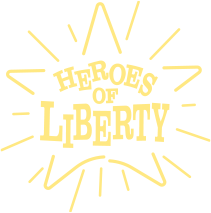As parents, we’re always thinking about how to do the best for our children. We want them to be happy and healthy, and to fulfill their true potential. As parents, we know that giving our children good, nutritious food to eat is an important part of keeping our children physically in shape, providing them with all the nutrients they need to develop and grow. We take care to provide them with a varied and balanced diet, making sure to cover all the food groups so that they get everything they need. And we keep a careful eye on their intake of unhealthy junk foods, limiting them to just the occasional treat. But how many of us think about our children's cultural intake in the same way?
The importance of culture
Storytelling is as old as humanity itself. Long before people were writing books or making films, they were sitting around campfires, telling stories. But the stories we tell aren’t just fanciful nonsense, made up to entertain. They carry important cultural information: about who we are, where we come from, and where we want to go. They teach us about the values that are important to us, both as individuals and as a society. And they help us learn important lessons on how to behave in life, in the good times and in the bad.
Young children pick up important skills, through listening to stories which help them prepare mentally. That’s why when we have a child who is potty training, we might read board books with them about using the potty. Or if parents are expecting a younger sibling, an older child might be read a story about becoming a big brother or sister.
As children grow older, they start to pick up their values from stories they hear in much the same way. Give them stories about brave adventurers who slay dragons, and they will be better emotionally equipped to face the challenges of adult life.
It’s no surprise, then, that along with a requirement for good nutrition and exercise, children are born with a need to hear stories. As professor Yvonne Kelly of University College London told the BBC: "Children who listen to stories show better results in measures such as literacy tests and SATs — but also in terms of social and emotional development."
In this context, it’s clear that we parents need to pay as much attention to the stories our children read, watch and hear, as we do to what they eat if we want them to be happy and healthy.
We need to learn to recognize the cultural junk, which is ok as an occasional treat but is harmful if our kids consume too much of it. And we need to know where to go to get the healthy stuff: stories full of the values and role models that our children need for healthy emotional and mental development.
Healthy culture; junk culture
So what is a healthy cultural diet?
Generally speaking, the best stories to give your children, whether as books, films, comics or in any other form, are those in which the main characters are good role models. The stories also need to contain the sorts of values you want your children to embrace; main characters should show daring, ingenuity, a positive attitude, and a generous spirit.
Adventure tales featuring a brave and daring hero who saves the day are tried-and-tested favorites; stories like The Adventures of Tom Sawyer, The Hobbit, or Treasure Island all hit the mark for boys here. Girls might prefer stories with female leads: The Little House on the Prairie, Little Women, and A Little Princess are well-loved classics featuring girls who overcome adversity and learn valuable lessons along the way.
In addition, children can learn a lot about our culture, American history, and what makes America great through reading books set in past times. For example, Heroes of Liberty’s Alexander Hamilton brings the story of this founding father to life, giving children a glimpse into early America, while our upcoming book Harriet Tubman teaches children about the Underground Railroad and the American civil war. For more ideas, 10 Traveling Feet has a list of more than 50 books divided by historical category, from colonial life to life on the prairie, and the gold rush.
Conversely, junk culture is made up of stories in which the characters behave, by the end of the story, in ways that you wouldn’t want your own children to copy. It’s important to note that most stories start with the main character making mistakes; think of Pinocchio, who runs away from home, joins a band of rough kids, and nearly turns into a donkey before finally changing his ways and, as a reward, becoming a real boy. The difference in junk culture is that the main characters either don’t change their ways, or reach a conclusion that doesn’t embrace American values.
If you find your children watching films in which characters are portrayed as good people for doing something you wouldn’t want your kids to do, turn it off and find something better for them to watch or read.
If you found this post useful, please share so others can benefit too.






